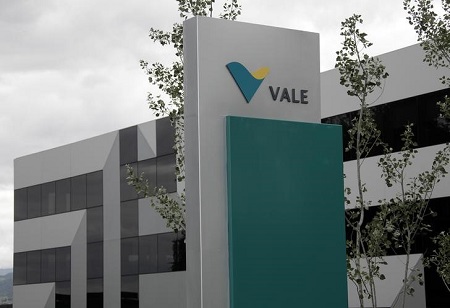
Vale Signs Agreements with Chinese Companies to Bolster Strategic Agenda in Asia

 To support its strategic objective in Asia, Vale signed seven agreements with various Chinese partners.
To support its strategic objective in Asia, Vale signed seven agreements with various Chinese partners.
A project investment agreement was signed for the construction of a Rotary Kiln-Electric Furnace (RKEF) ferronickel processing plant with a minimum annual production of 73,000 metric tonnes of nickel and other supporting facilities in the district of Morowali, Indonesia, by Vale's Indonesian subsidiary, PT Vale Indonesia, Taiyuan Iron & Steel Co. Ltd. (Tisco), and Shangdong Xinhai Technology Co. (Xinhai).
The project is anticipated to be green and low-carbon, with a start-up date of 2025. It will use gas-fired power to supply electricity.
In relation to the advancement of biochar in the steel sector, the company also signed a collaboration agreement with Baoshan Iron & Steel, a China Baowu subsidiary.
A strategic path to low-carbon metallurgy is increasingly seen as involving biomass energy. Vale plans to lower scope 3 emissions by 15% by 2035 as a result of the accord.
A greenhouse emissions MOU was also inked by the miner and the largest construction machinery company, XCMG, to jointly build the first mining motor grader with zero emissions.
Mines in the states of Minas Gerais and Pará will be utilised to test the device, which is used to level mine entrances. If tests are successful, Vale will purchase a number of them. The company now employs 90 motor graders.
Vale has also signed multi-year Memorandums of Understanding (MOU) with the Bank of China (BOC) and the Industrial and Commercial Bank of China (ICBC), respectively.
The two Chinese banks seek to support Vale's credit, according to the MoUs, by offering loan facilities, project financing, trade financing, asset financing, and bank guarantees, among other things.
In order to improve technical cooperation, Vale also said that it has inked a cooperation agreement with Central South University (CSU).
Vale has agreed to provide $5.81 million to help CSU build a new facility for low-carbon metallurgy and hydrogen that would have a total space of roughly 3,000 square metres.

